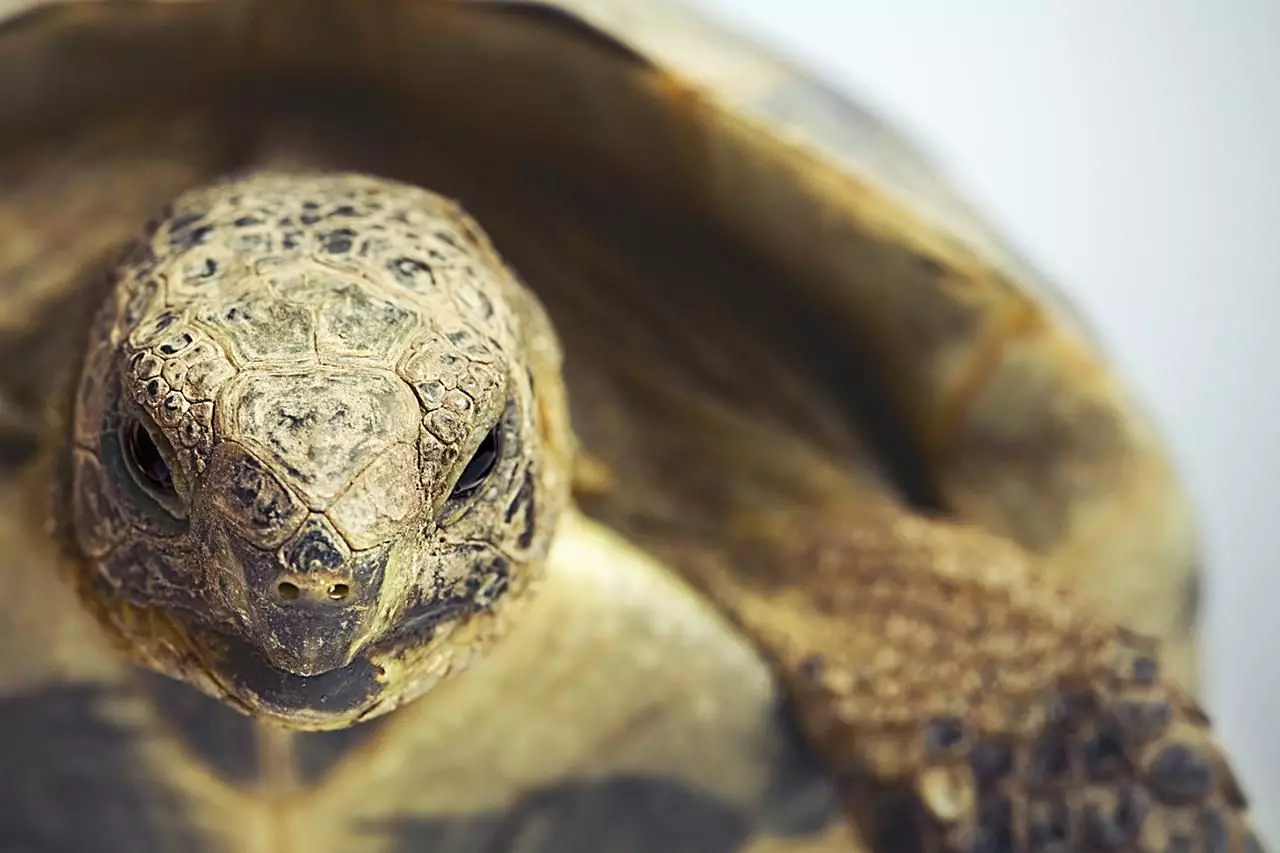Greek tortoises (Testudo graeca), native to Southern Europe, Northern Africa, and Southwest Asia, have captured the hearts of many as delightful pets. With their charming personalities and striking shell colors that range from tan to yellow, accented with dark brown to black patterns, these tortoises can become wonderful companions. However, potential owners must understand that these tortoises are not just temporary pets; they have an impressive lifespan that can exceed 50 years, necessitating a long-term commitment that not everyone might be prepared to make.
Greek tortoises are inherently low-maintenance in certain respects, but their specific care requirements demand attention. Unlike more interactive pets like dogs or cats, these tortoises prefer minimal handling. Indeed, frequent handling can lead to stress, which negatively affects their well-being. They may even resort to biting when feeling threatened. For owners, this means that it is essential to respect these animals’ boundaries. When handling must occur—such as during cleaning—gentle and cautious methods should always be employed.
Many owners praise Greek tortoises for their amiable demeanor, especially once trust is established. They can display curious behavior, often approaching their owners—particularly if food is involved. While these creatures remain relatively small, typically growing to about 10 inches in length, they do require plenty of space to roam and exercise. A spacious enclosure is vital, with many owners opting for large plastic storage tubs or handcrafted wooden pens instead of conventional fish tanks, which can lack the necessary floor space.
For proper habitat creation, a recommended enclosure size is at least 3 feet by 6 feet with walls about 18 inches tall. It’s essential, however, that bigger is indeed better in this context. The enclosure must be cleaned daily to remove any uneaten food and waste, with weekly scrubbing using reptile-safe cleaning products.
Temperature is a critical component of a Greek tortoise’s environment. They thrive in an ambient setting of 75 to 90 degrees Fahrenheit. A basking area equipped with a heat lamp should reach between 95 and 100 degrees Fahrenheit during the day, while nighttime temperatures can safely decrease to a range of 70 to 80 degrees Fahrenheit. Greek tortoises can tolerate cooler temperatures if kept outside, but caution must be exercised to avoid exposing them to drastic weather changes or extreme temperatures.
Maintaining appropriate humidity levels—between 40% and 60%—is also of utmost importance. A hygrometer can help monitor moisture, and misting the tortoise several times a week can assist in maintaining humidity levels. Additionally, a continuously filled water dish not only serves for hydration but also increases humidity within the enclosure. Safe substrate choices, such as a mixture of reptile-safe mulch or aspen shavings, should be provided to create a comfortable habitat.
Diet plays a crucial role in the health of Greek tortoises, which are strict herbivores. Their nutrition should focus predominantly on high-fiber, low-protein foods. Dark, leafy greens and various vegetables—such as collard greens, dandelion greens, and zucchini—should make up the majority of their diet. An additional source of fiber like chopped-up Timothy hay should be introduced. Small portions of fruit can be included, but these should not exceed 10% of their overall diet. Providing a quality commercial pellet supplement is also advisable.
Sadly, Greek tortoises can be prone to various health issues, including shell rot and metabolic bone disease, both of which can be debilitating or even fatal if ignored. Regular veterinary checkups and proper habitat conditions are essential to prevent such ailments. Observing their behaviors is important too; any signs of lethargy or refusal to eat may indicate underlying health problems requiring immediate attention.
When considering the purchase of a Greek tortoise, it is best to seek reputable breeders who understand the tortoise’s history and health records. The average initial cost is around $200, but that price pales compared to the long lifespan and commitment expected from an owner.
Owning a Greek tortoise can be immensely rewarding, offering years of companionship and a fascinating look into the slow-paced life of one of nature’s intriguing reptiles. By understanding their needs and preparing for a long-term commitment, a Greek tortoise can bring joy to its owner for decades. Like any pet, successful ownership requires respect, diligent care, and a willingness to meet specific requirements to foster a healthy, happy, and enriching life for this enchanting creature.

